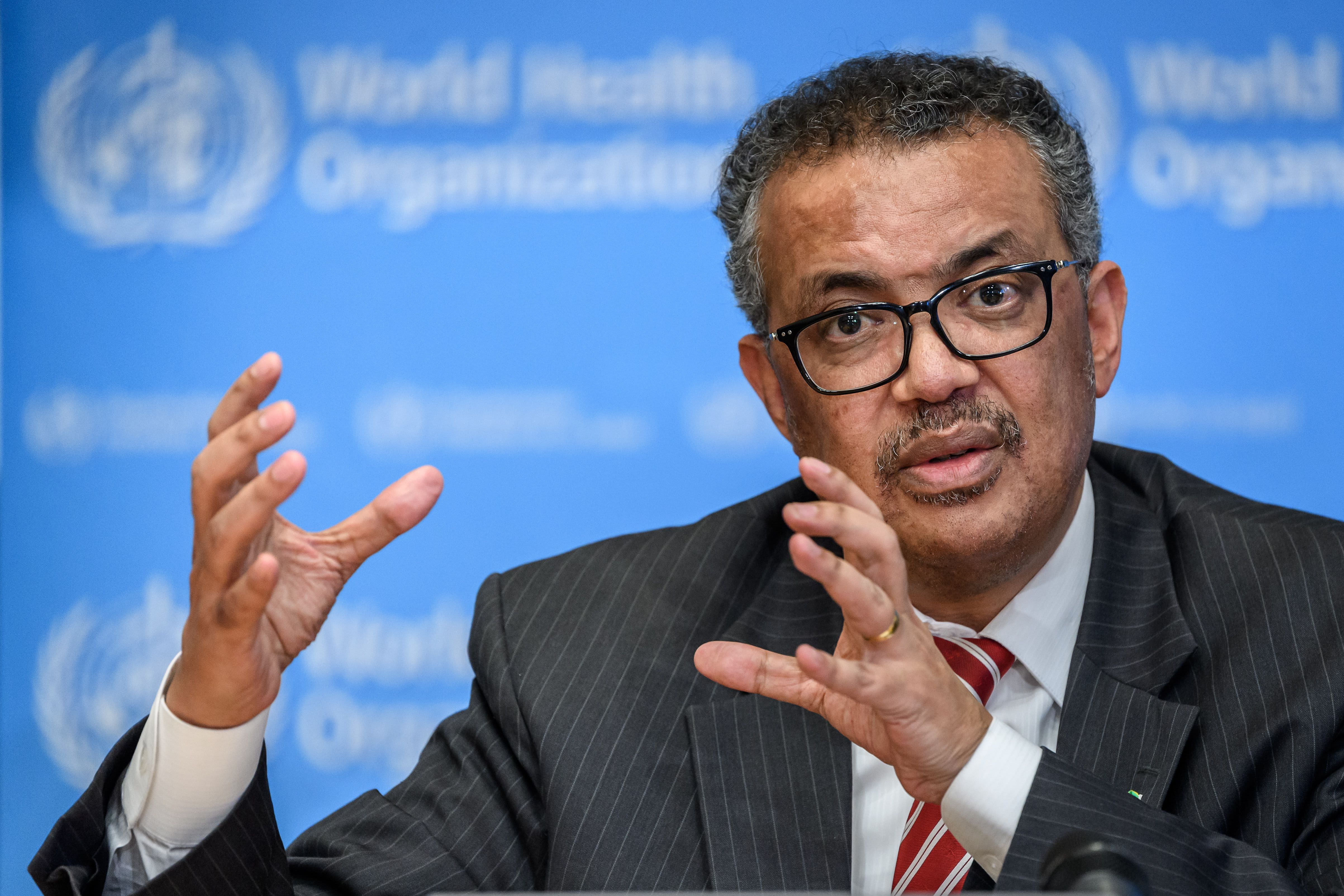
World Health Organization (WHO) Director-General Tedros Adhanom Ghebreyesus talks during a daily press briefing on COVID-19 virus at the WHO headquaters in Geneva on March 11, 2020.
Fabrice Coffrini | AFP | Getty Images
The World Health Organization warned Wednesday that new coronavirus variants could emerge during the pandemic that render the current vaccines useless.
“As this pandemic drags on, it’s possible that new variants could evade our countermeasures and become fully resistant to current vaccines or past infection, necessitating vaccine adaptations,” WHO Director-General Tedros Adhanom Ghebreyesus said at a press conference in Geneva.
Tedros sounded that alarm as Covid cases hit record highs in many nations, including in the U.S. The latest surge, coming more than 21 months after WHO first declared Covid a pandemic, is fueled by the spread of the new and highly transmissible omicron variant.
Tedros reiterated his frequent calls for nations to work together to improve global supplies and access to Covid vaccines and other crucial health equipment.
He also slammed reactionary nationalist and populist political leaders who have “undermined equity and created the ideal conditions for the emergence of new variants.”
“Misinformation and disinformation, often spread by a small number of people, have been a constant distraction undermining science and trust in life-saving health tools,” the world health leader said.
He noted that “in the huge waves of cases currently seen in Europe and in many countries around the world, misinformation which has driven vaccine hesitancy is now translating to the unvaccinated disproportionately dying.”
Covid vaccines such as Pfizer and BioNTech’s shots are still effective at preventing severe disease from omicron, experts say. While they can still prevent severe illness, they are much less effective at preventing infection from omicron. Booster shots, on the other hand, significantly increase protection from symptomatic disease caused by omicron.
If a vaccine-resistant strain of the virus emerges, manufacturers will have to tweak their shots, which “would potentially mean a new supply shortage,” Tedros warned Wednesday.
It is important for nations to build up their local manufacturing supply of vaccines before that happens, he said.
“This virus will continue to evolve and threaten our health system if we don’t improve the collective response,” Tedros said. “I’m highly concerned that omicron, being more transmissible, circulating at the same time as delta, is leading to a tsunami of cases.”
Vaccine supplies are currently improving, he said, while repeating his criticism that rich countries’ booster-shot programs are making it harder for poor nations to obtain any vaccines. That growing inequity could prolong the pandemic.
Despite the ongoing public-health threat and the possibility of future challenges, Tedros said he is “optimistic” the acute stage of the pandemic can end in 2022.




